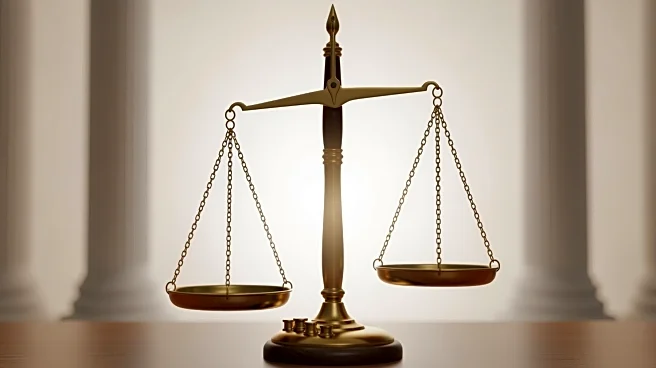What's Happening?
The Supreme Court is examining President Trump's use of the International Emergency Economic Powers Act (IEEPA) to impose global tariffs. During the arguments, Chief Justice John Roberts and other conservative justices expressed concerns about the administration's
interpretation of the law, which has never been used for tariffs before. The case challenges the president's authority to impose tariffs without congressional approval, with potential consequences for the U.S. economy and presidential power. The court's decision could redefine the scope of executive authority in economic matters.
Why It's Important?
The ruling could have significant implications for the balance of power between the executive and legislative branches. If the court limits the president's ability to impose tariffs, it could reinforce congressional control over trade policy and taxation. This decision may affect U.S. businesses and consumers, as tariffs impact market prices and international trade relations. The case highlights the importance of checks and balances in government, potentially setting a precedent for how emergency powers are interpreted in future cases.
What's Next?
The Supreme Court is expected to vote on the case soon, with opinions likely to be drafted over the coming weeks. If the court rules against the tariffs, there may be complex legal and logistical challenges in unwinding the billions of dollars collected under these tariffs. The ruling could also prompt legislative action to clarify the scope of presidential powers under IEEPA.
Beyond the Headlines
The case raises questions about the use of emergency powers and the potential for executive overreach. It may influence how courts interpret vague statutory language in the context of major economic and political decisions, affecting future administrations' approach to governance and policy implementation.
















